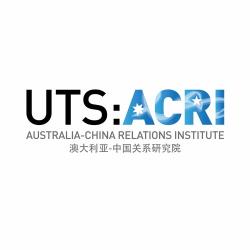The Australian government regularly expresses concern about territorial disputes in the South China Sea and China’s militarisation of disputed features there. But what is the Australian government doing about it, and has it been effective?
Andrew Chubb, Postdoctoral Fellow in the Columbia-Harvard China and the World Program, and Fellow of the Perth USAsia Centre, joins Simone van Nieuwenhuizen, Project and Research Officer at the Australia-China Relations Institute (ACRI) at the University of Technology Sydney, to discuss his recent policy brief for China Matters, 'Is there a problem with Australia’s South China Sea policy?'
Guest: Andrew Chubb, Postdoctoral Fellow, Columbia-Harvard China and the World Program; Fellow, Perth USAsia Centre
Host: Simone van Nieuwenhuizen, Project and Research Officer, Australia-China Relations Institute, University of Technology Sydney
The Australian government regularly expresses concern about territorial disputes in the South China Sea and China’s militarisation of disputed features there. But what is the Australian government doing about it, and has it been effective?
Andrew Chubb joins Simone van Nieuwenhuizen to discuss his policy brief for China Matters, ‘Is there a problem with Australia’s South China Sea policy?’
Australia’s current South China Sea policy needs an update. Australia faces increased uncertainty in the region as a result of US President Donald Trump’s unpredictability; the changing dynamic of the US-China relationship in the context of their trade war; and China’s more assertive policy stance. The risk of conflict may therefore increase. In this environment, Australia needs to align more with other countries around the region, instead of focusing on US.
Australia is out of step with language used in the region. For example, instead of calling for a halt to land reclamation, Australian statements should echo the Association of Southeast Asian Nations (ASEAN) in drawing attention to the negative consequences of land reclamation. This better reflects the reality on the ground. Australia could improve its regional coordination on South China Sea policy, especially with Indonesia and Singapore, who arguably share more similar interests with Australia than with the US.
Due to China’s fear of becoming isolated in its own region, it takes collective statements by ASEAN – the voice of the region – more seriously than unilateral criticism. While English-language media has generally depicted ASEAN statements on the South China Sea as weak or watered-down, they do make China uncomfortable. For example, in response to the 2014 Haiyang Shiyou 981 oil rig standoff between China and Vietnam, ASEAN foreign ministers released a statement expressing serious concerns. While the statement did not explicitly mention China, China withdrew the oil rig and later made some diplomatic concessions. At the same time, the effects of ASEAN statements should not be overstated; it remains difficult to determine their impact on China’s overall behaviour in the South China Sea.
Australia already conducts aerial patrols over the South China Sea that assert international freedom of navigation rights. It could upgrade its activities by conducting freedom of navigation operations (FONOPs) to demonstrate its support for international law in accordance with the United Nations Convention on the Law of the Sea (UNCLOS), either individually or in collaboration with regional countries, but not with the US. FONOPs undertaken with the US would only be seen by China as a provocation, and fuel the narrative of Australia being a ‘deputy sheriff’ and out of touch with the region.
Other recommendations include encouraging China to clarify, but not necessarily abandon, its nine-dash line by explaining how its ambiguity results in the region’s mistrust. The Department of Defence could consider undertaking more simulations and table-top exercises on various South China Sea scenarios to enhance their preparedness. There is also the possibility of supporting a joint fisheries management scheme for Scarborough Shoal, as the 2016 arbitral tribunal ruling confirmed the Philippines, Vietnam and China have traditional fishing rights there.
Theme music by Sam J Mitchell.


